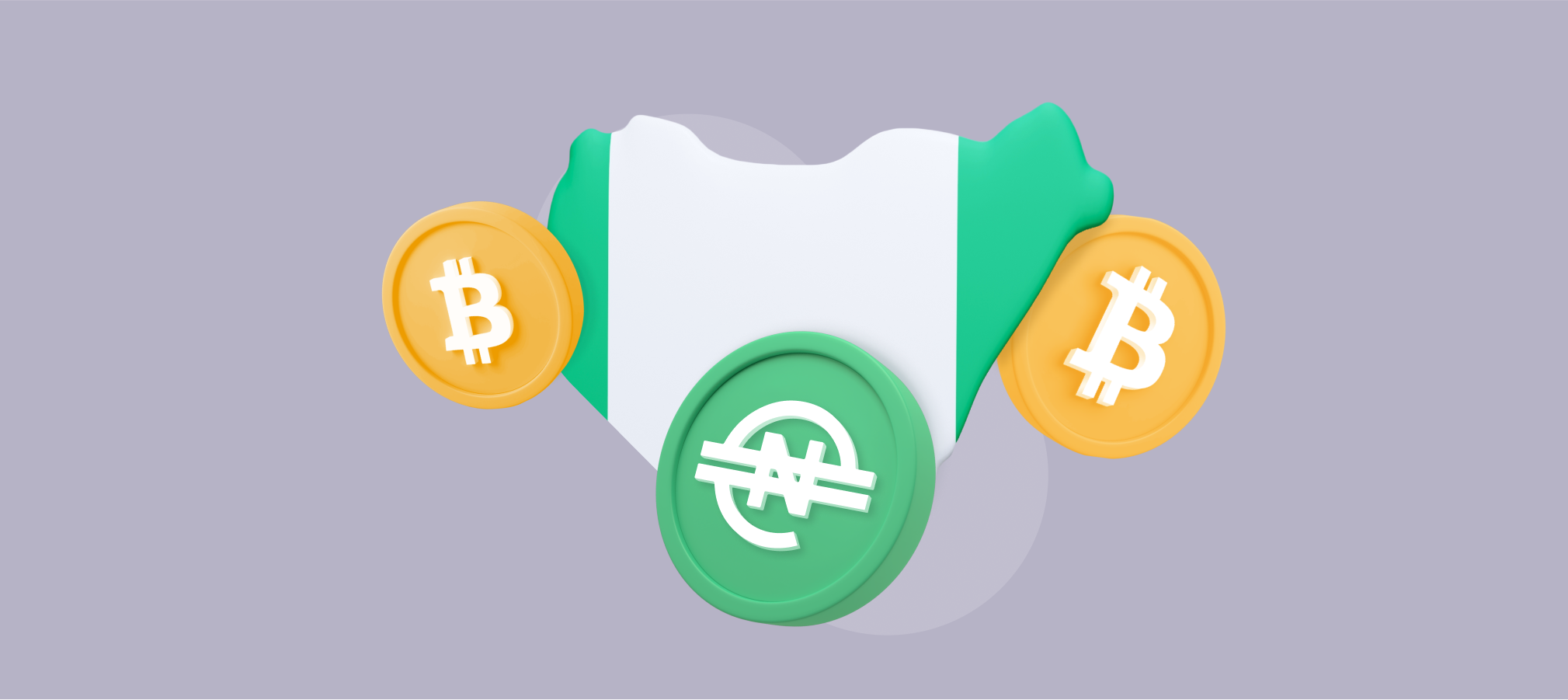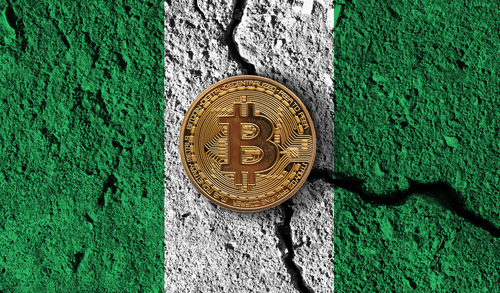CBDC And Crypto In Nigeria

This blog post will cover:
- The Crypto Unfriendly Central Bank
- eNaira — Nigeria’s Central Bank Digital Currency
- eNaira Criticism
- El Salvador and Nigeria, two opposite models
- Conclusion
Crypto is getting popular in Nigeria, one of the quickest emerging economies on the continent. The country is leading the way for crypto adoption, with more than 32% of Nigerians have used cryptocurrency, more than any other country. According to Kucoin, despite the fact that the use of cryptocurrencies is restricted by the Central Bank of Nigeria (CBN), 33.4 million of Nigerians still find workarounds, using P2P.
But it’s still not that bad, because people who use cryptocurrency are usually not punished by the government. A press release published by CBN stated that dealers and investors in any kind of cryptocurrency in Nigeria are not protected by law. And this, in turn, means that the Central Bank only warns citizens that if they suffer losses as a result of crypto fraud, no one will be able to help them.
Nevertheless, there are promising as well as prospectless developments that are now taking place in Nigeria regarding cryptocurrency. So let’s dive a little into this topic.
The Crypto Unfriendly Central Bank
Nigeria has a very controversial situation in the matter of cryptocurrency. The CBN appears to hold a negative outlook, on February 5th of this year ordered that all financial institutions not facilitate the trading of crypto. All banks or other entities have to ban accounts of anyone involved with transacting in crypto. The order also comes with big fines if caught breaching them.
The directive has the goal to stop “cybercrime” that is often portrayed by the media as being associated with crypto. The CBN has no intention of letting go of its negative outlook, writing in the same statement that it will continue to take the necessary provisions to stop citizens from using crypto and protect them from cybercrime.
However, surprisingly the bad press and negative policies towards crypto by the CBN have had no visible impact on the digital asset adoption, which despite all keeps growing.

eNaira — Nigeria’s Central Bank Digital Currency
The CBN sees traditional cryptocurrencies as a competitor to its own Central Bank Digital Currency (CBDCs), the eNaira. Unlike cryptocurrencies, CBDCs are digital versions of fiat money, which provide the government more flexibility with its policies. The CBN chooses the eNaira because unlike traditional crypto, transactions are not anonymous and can be tracked easily by authorities. On top of that, the control of the network is centralized in the hands of the Central Bank like with any fiat, rather than the decentralized nature of blockchain technology. Simply said, the eNaira is just a government-controlled “alternative to cryptocurrencies”.
eNaira is available to all citizens no matter their wealth, it works peer-to-peer, and comes interest-free. It represents one of the 1st real economic implementations of CBDC technology. Along with Nigeria, many other Central Banks, such as the US Federal Reserve and the European Central Bank, are developing their own CBDC.
In Nigeria, almost half the population doesn’t have a bank account or any access to their services. eNaira allows users to perform transactions with each other P2P through the eNaira app.
The government is also claiming that eNaira will promote growth and a more efficient economy. The coin will also allow more targeted social assistance for citizens in need, with government assistance coming directly and with no intermediaries to those in need.
The emerging Nigerian economy, still poverty-stricken in many places, could certainly see some advantages from adopting CBDC technology. The unbanked people of the world, living primarily in emerging markets, could use all the bank services needed, without having a bank.
eNaira Criticism
However, the eNaira did not have the wanted effect on Nigeria, many citizens are not willing to use it. A lot of services on the app are not yet available, making good old cash the best option for most. On top of that, the Nigerian currency Naira has seen inflation of over 17% in the last months, making transactions increasingly difficult.
Additionally, the eNaira as well as CBDC in general has come under heavy criticism by many in the crypto community. They claim that the centralized nature of CBDC means that the government will have more control over its issuance, and ultimately, over citizens' lives. Unlike decentralized blockchain technology, all transactions with CBDCs can be easily tracked and associated with a person as they aren’t pseudonymous. So, the government can implement functions such as auto-taxes and decide where and when you can spend coins. Critics see this as a threat to their financial privacy and liberty.
El Salvador and Nigeria, two opposite models
Nigeria adopted the eNaira CBDC, based on a centrally controlled blockchain. El Salvador chose the polar opposite option, adopting Bitcoin as its legal tender. Bitcoin, unlike eNaira, is completely decentralized with the El Salvador central bank having absolutely no control over it. Both methods have their critics, with worthwhile arguments to be pro or against.
Bitcoin has the advantage of not being subjected to high rates of inflation, unlike the Nigerian Naira currency. However, businesses may still have a hard time adopting Bitcoin for their operations, as the extremely volatile nature makes it difficult to account for.
Conclusion
Nigeria is an emerging economy with a surprisingly high rate of crypto adoption. The CBN does not have a favorable view of cryptocurrencies and is actively trying to dissuade their use, but this has not worked as many Nigerians continue flocking to cryptocurrencies. The released eNaira CBDC has also not had the desired adoption, however, it might be too early to call it a failure. Only time will tell what the future holds for crypto in Nigeria, however, there’s a possibility that the government might double down on its effort to stop the adoption of traditional cryptocurrencies.
Also if you’re willing to know how it's going with crypto in Mexico, India, Russia or USA, feel free to come by! More exciting content is coming, see you soon on SimpleSwap Blog.

